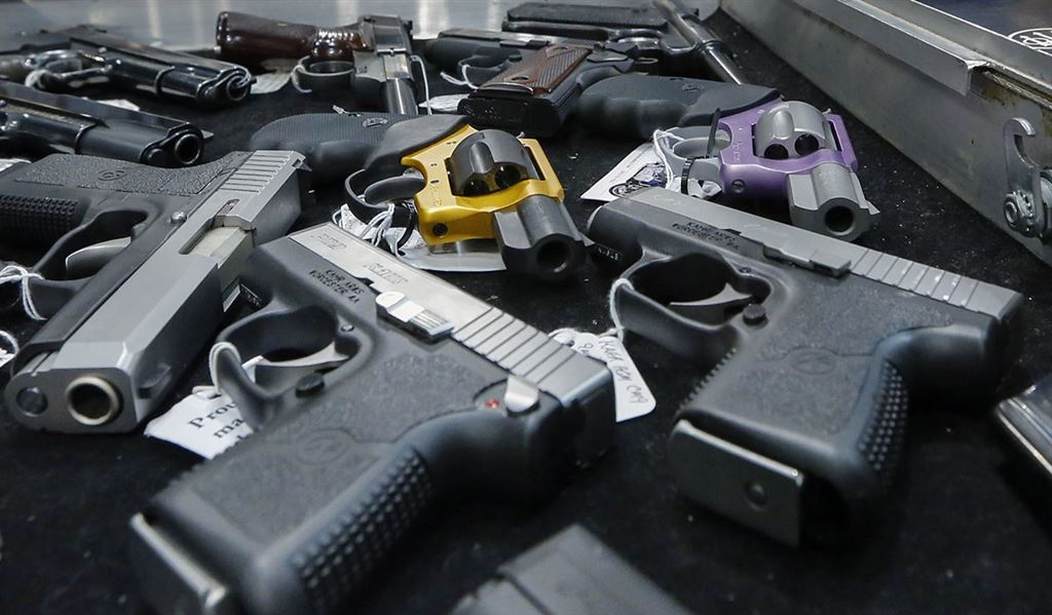One of the great things about the United States is the understanding that we’re all created equal. What some people do with their equality is questionable at best, but we all start out the same way. Any of us can grow up to be anything. The potential is there. We can grow up poor and end up a billionaire. It’s happened, after all.
Yet even into adulthood, we’re still considered equal before the law and the government, at least in theory. We’re supposed to all have an equal say in who we elect.
However, the primary process is long and drawn out. It’s also expensive.
As a result, some are looking at how to potentially reform the process. Unfortunately, a suggestion surfaced Monday on the Washington Post‘s website that illustrates the overall disdain some people have for the “Great Unwashed Masses,” as my mom used to joke. You see, the problem is that the wrong people are getting nominated in the primary process, so the answer is clearly to make sure those unwashed masses don’t really get a say in the process.
The current process is clearly flawed, but what would be better? Finding an answer means thinking about the purpose of presidential nominations, and about how the existing system falls short. It will require swimming against the tide of how we’ve thought about nominations for decades — as a contest between everyday voters and elites, or as a smaller version of a general election. A better primary system would empower elites to bargain and make decisions, instructed by voters.
In other words, you get to vote, but no one actually has to pay any attention to what you say.
Seriously, how does anyone look at that and not see how it can become ripe with abuse? How long would it take for a handful of so-called “elites” to decide they’re kingmakers? Democrats already have superdelegates, but she’s proposing making it so those are the only ones who decide who gets to pick the nominee.
Of course, I find this paragraph interesting:
Some critiques point to nominees such as Donald Trump — lacking in conventional qualifications and appreciation for democratic norms — as proof that nominations shouldn’t be too democratic. But the same system, more or less, produced candidates such as Barack Obama and Mitt Romney. The quality of the system can’t be measured solely in terms of the kinds of nominees it produces. Instead, we should think about how it reflects the preference and values of the different components of the party coalition.
So, Trump was proof the nominations shouldn’t be too democratic, but he won the general election. Mitt Romney is proof that the system can pick good candidates, but he lost.
Notice a trend there?
Yet remember that these are the same “elites” that think they know better how to run your life than you do. This proposal would put the political power in the hands of the very same people who don’t really think you should have a firearm.
See, the author of this piece probably considers herself an elite:
Julia Azari is an associate professor and assistant chair in the Department of Political Science at Marquette University. This is the third op-ed in a series about how to improve the presidential nominating process.
She probably thinks that people who vote like you or I might vote are broken, that we’re completely incapable of making the right decision, so our decisionmaking power must be taken away from us.
This is a sentiment I routinely see from urban centers directed toward more rural parts of their states. The idea is that they don’t know what’s good for them, be it which candidate to pick or whether or not they should be able to own guns.
Yet once a small group gathers the power to pick our leaders, how long before our leaders become more interested in appeasing them. Sure, this right now is about the primaries, but if those are the butts you need to kiss to even get on the ticket in the first place, those are going to be the people you make sure are happy first and foremost.
Once that happens, though, folks like you and me become a secondary consideration at best.
Azari’s proposal is nothing more than a bid to create a new aristocracy, a select group of people with all the power to decide ultimately who is going to be president.
And it’s why I’m going to hold onto my guns, thank you very much. I’m not a big fan of so-called elites and while I know our primary process hasn’t been around forever, it at least puts power mostly in the hands of the people. I don’t trust them to use that power responsibly and it’s only a matter of time before those elites decide they know better than we do on any number of other subjects.
Well, I have a problem with that. I expect a lot of other people feel the same way.
Is it any wonder that so many “elites” want the people disarmed? If they’ll propose this while we still have guns with which to resist them, what comes after they’ve somehow managed to disarm us?








